With planning and precautions, you may be able to keep winter health issues at bay

Winter isn’t easy … and we’re not just talking about shoveling snow off the driveway. The cold-weather months bring a blizzard of health issues ranging from flu bugs to dry skin to the winter blues.
Advertisement
Cleveland Clinic is a non-profit academic medical center. Advertising on our site helps support our mission. We do not endorse non-Cleveland Clinic products or services. Policy
But there are steps you can take to minimize problems and remain healthy and happy until spring. (An added bonus? These steps don’t require snow boots.)

Image content: This image is available to view online.
View image online (https://assets.clevelandclinic.org/transform/11ac58be-ea82-4978-82ec-411d4f42099f/ColdWeatherLipCare-1300985920-770x533-1_jpg)
Winter can be rough on your lips. The cold air outside and the furnace-dried air inside work in tandem to dry out your lips, which can leave them painfully chapped and cracked. Want to avoid that ordeal? Start with these six tips to protect your lips from dermatologist Melissa Piliang, MD.
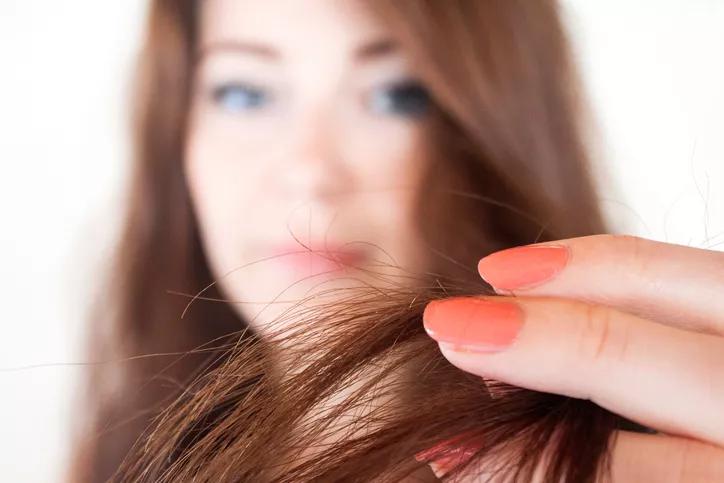
Image content: This image is available to view online.
View image online (https://assets.clevelandclinic.org/transform/6fecec62-e57e-4e82-b670-2167a959c6d7/DryShampoo-4_jpg)
Think about how carefully you treat a cashmere sweater. Take that same gentle approach while caring for your hair during the winter months, says dermatologist Wilma Bergfeld, MD. Gentle brushing is one of many tips to keep your tresses healthy.
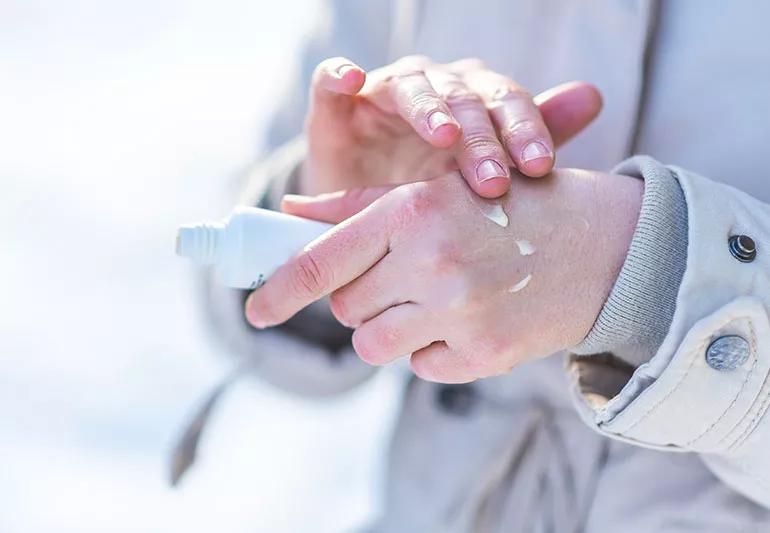
Image content: This image is available to view online.
View image online (https://assets.clevelandclinic.org/transform/a7bbb205-6c25-476e-8b8d-c8cca869a9c1/EczemaInWinter-1128664753-770x533-1_jpg)
Winter weather can leave your skin itchy, red and flaky. That can turn into a BIG pain given that we’re talking about your body’s largest organ.
Dermatologist Alejandra Estemalik, MD, recommends these seven tips to feel more comfortable in your own skin.

Image content: This image is available to view online.
View image online (https://assets.clevelandclinic.org/transform/e43a421d-1481-4cd0-8ca1-2148505de10f/SnowWomanSick-1024x745_jpg)
Sniffing dry winter air can dry out your sinuses. And while the thought of less gooey mucus in your nasal cavities might sound enticing, it’s not ideal. The reason? That gunk protects you by trapping germs before they infect you.
That’s part of the reason why respiratory ailments such as bronchitis, sinusitis and even nosebleeds are so common during winter. Use these tips to protect yourself, says family medicine physician Daniel Allan, MD.
Advertisement
Winter asthma can be a big issue, too. Here are seven ways to manage it from pediatrician Roopa Thakur, MD.

Image content: This image is available to view online.
View image online (https://assets.clevelandclinic.org/transform/528741d3-ab27-4b03-bbe2-c36c6167c900/washHands-sb10066543n-001-770x533-1_jpg)
The importance of washing your hands has been mentioned a time or two over the past few years with COVID-19. Guess what? It’s not just a good idea during a pandemic. Good hand hygiene can help you better avoid everything from the flu to pink eye, explains ophthalmologist Rishi Singh, MD.
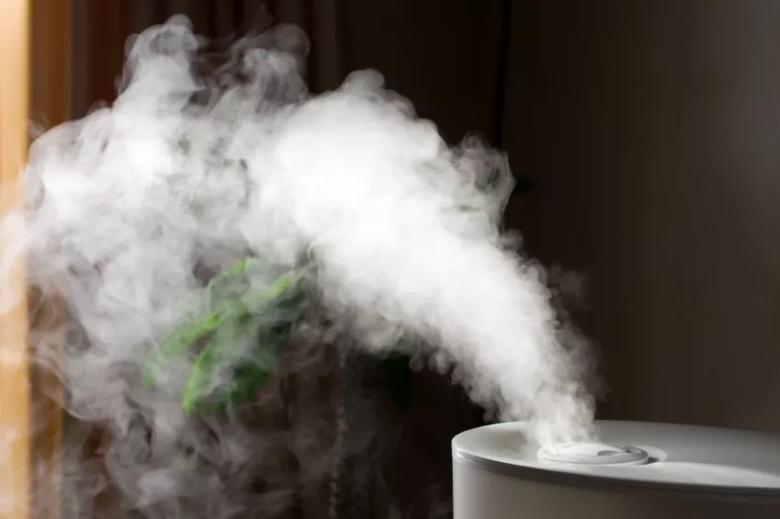
Image content: This image is available to view online.
View image online (https://assets.clevelandclinic.org/transform/65322cf7-2a32-41d5-8ae0-cf4371b1681f/iStock_000019586930_Small-1_jpg)
Notice a common theme in all of the previous items? Yep — it’s dry air. Running a humidifier can help resolve the issue that opens the door to many problems. Learn how to get the most out of your humidifier from pulmonologist Kathrin Nicolacakis, MD.
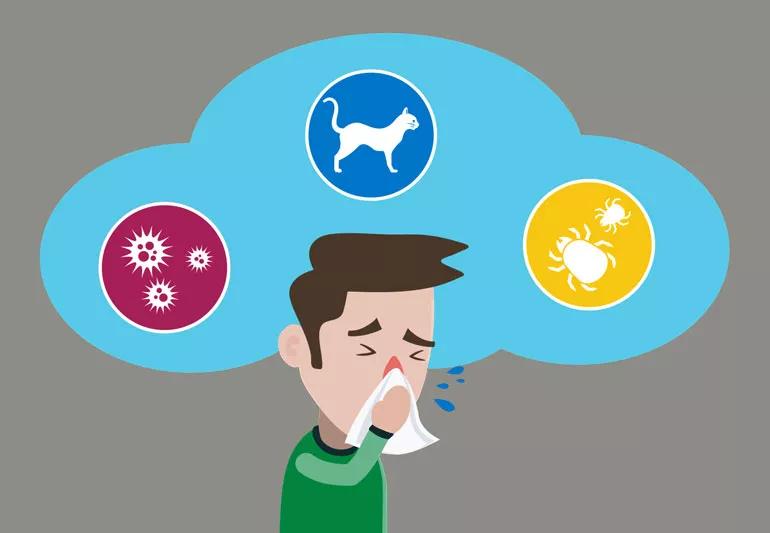
Image content: This image is available to view online.
View image online (https://assets.clevelandclinic.org/transform/f671cc5c-1fed-48e1-95a5-06d45b179748/winterAllergies-902659222-770x533_jpg)
Allergies don’t take the winter off. Being cooped up inside during cold weather months can make life tough for anyone allergic to dust mites, molds or pets. Allergist Sandra Hong, MD, suggests these tactics to keep sneezing and itchy eyes to a minimum.
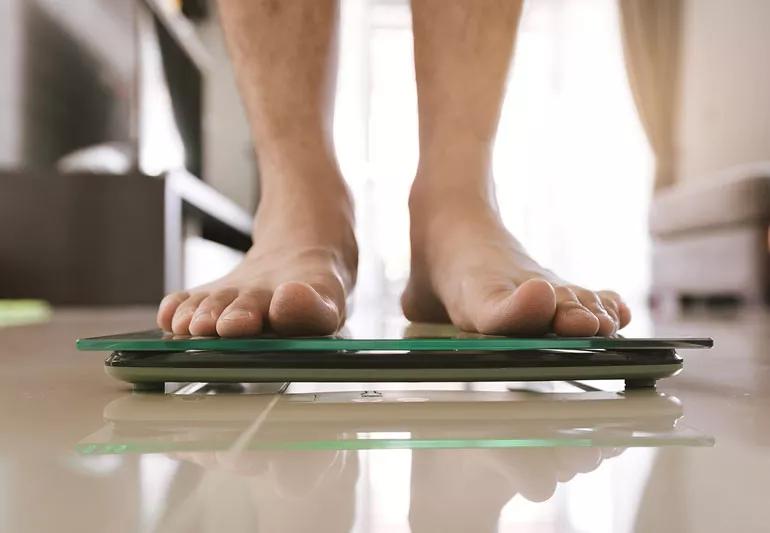
Image content: This image is available to view online.
View image online (https://assets.clevelandclinic.org/transform/3435abcc-0e0b-4134-96b4-be79ca00e550/BMIscales-1128132139-770x553_jpg)
Winter brings holidays … which brings festive gatherings … which brings food. Lots and lots of food. It’s common to pack on a few pounds during the colder months. Want to prevent it? Keep up your fitness routine by learning how to safely stay active in the cold with these tips from orthopaedic surgeon Michael Scarcella, MD.
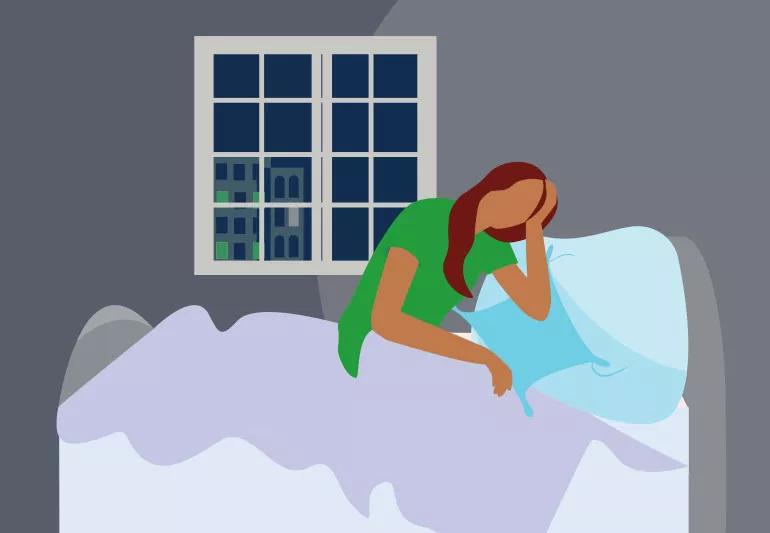
Image content: This image is available to view online.
View image online (https://assets.clevelandclinic.org/transform/61b1ac08-4849-47d0-9155-6eede3af04b2/wmnSadBed-1390248191-770x533-1_jpg)
Sunlight makes increasingly rare appearances for much of winter, which can make your mood … well, a bit dark. Don’t ignore symptoms of seasonal affective disorder (SAD), which include sleep disturbances, decreased energy and a lack of motivation.
Psychologist Adam Borland, PsyD, notes that light therapy is one of several methods that can be used to brighten your days. Talk to a healthcare provider before starting a program.
Advertisement

Sign up for our Health Essentials emails for expert guidance on nutrition, fitness, sleep, skin care and more.
Learn more about our editorial process.
Advertisement

Exerting yourself in cold temperatures increases your risk of a cardiac event

Used correctly, a humidifier can help with nose bleeds, allergies, dry skin, sleep quality and more
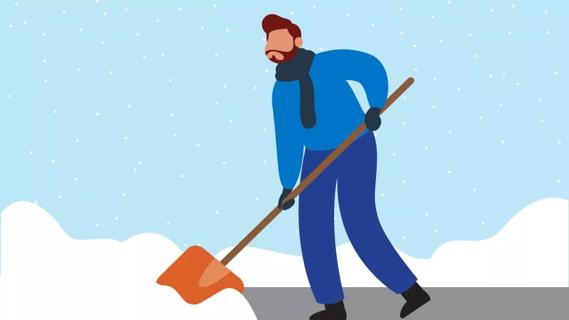
Stretch before heading outside, keep proper form and avoid jerking or twisting to throw snow

If the flakes are undisturbed, pristine white and come from the top layer, it’s typically safe to indulge in a scoop

Bottom line? Dress warm, be careful and plan ahead to get the most out of the season

Sneak in exercise when you can, pack your own lunch and make time for mental health
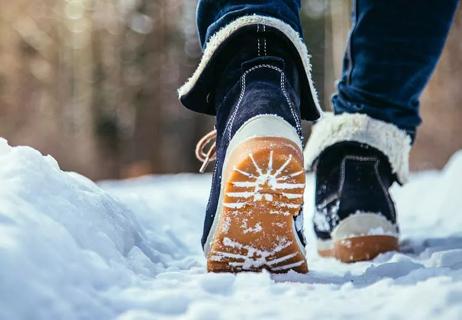
Taking slow, short steps and wearing proper footwear can go a long way in preventing falls

An ER doc shares tips for being careful while having fun

Even small moments of time outdoors can help reduce stress, boost mood and restore a sense of calm

A correct prescription helps your eyes see clearly — but as natural changes occur, you may need stronger or different eyeglasses

Both are medical emergencies, but they are very distinct events with different causes